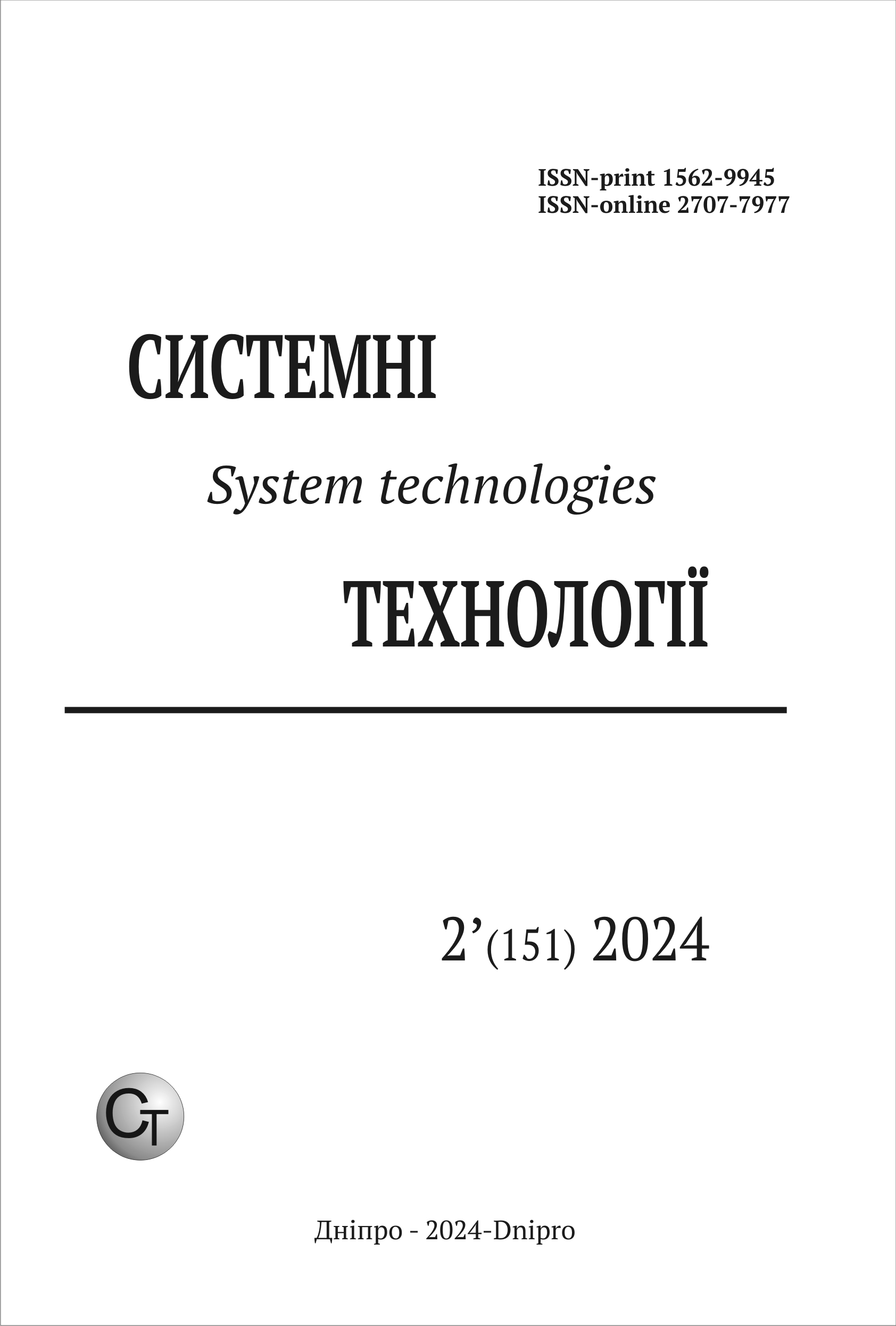ДОСЛІДЖЕННЯ ІНТЕЛЕКТУАЛЬНИХ МОДЕЛЕЙ УПРАВЛІННЯ НА ОСНОВІ ПРОЦЕДУР КЛАСИФІКАЦІЇ НЕВИЗНАЧЕНИХ ДАНИХ ЗІ ВСТАНОВЛЕНИМИ ВИМОГАМИ ДОСТОВІРНОСТІ РЕЗУЛЬТАТІВ
DOI:
https://doi.org/10.34185/1562-9945-2-151-2024-14Ключові слова:
класифікація наборів шаблонів, невизначені дані, редукція розмірності, статистика каппа Коена, нечіткі величини, certainty factor CF(A), модифікована мережа Хеммінга, інформаційна технологія, програмне забезпечення, завдання визначення авторства та призначення/відбір виконавця.Анотація
Стаття присвячена дослідженням властивостей і розвитку інтелектуальних моделей управління складними системами за умов невизначеності даних на основі процедур класифікації на основі методів редукції та статистики каппа Коена. Застосування цих методів забезпечує достовірне вирішення завдань з урахуванням оцінки граничної розмірності моделей класифікації. В роботі були досліджені можливості удосконалення нейронних мереж Хеммінга для класифікації даних у форматах нечітких величин і certainty factor CF(A). Також були визначені особливості удосконаленої математичної моделі завдань нечіткої класифікації на основі набору шаблонів ознак. Представлено структуру програмного комплексу інформаційної технології управління призначенням/відбором виконавців на основі класифікації наборів шаблонів із певних нечітких ознак, який використовує процедури редукції і каппа статистики.
Посилання
Skalozub V.V., Horyachkin V.M., Terletsʹkyy I.A., Dudnyk I.P. Formuvannya modeley klasyfikatsiyi nevyznachenykh danykh protseduramy reduktsiyi i kappa statys-tyky. Systemni tekhnolohiyi. – Dnipro, UDUNT, 2023. – № 5 (148). – С. 141-155. DOI: 10.34185/1562-9945-5-148-2023-13
Velykoivanenko, H. I. (2018). Otsiniuvannia rivnia ekonomichnoi bezpeky na pidgrunti vidstani Khemminha. Retrieved from https://core.ac.uk/download/pdf/197269753.pdf (in Ukrainian)
Vasilev V. I. Induktsiya i reduktsiya v problemakh ekstrapolyatsii. Cybernetics and Computer Engineering, 1998. Vyp.116, 65-81. (in Russian).
Kolesnyk A. S., Khairova N. F. Obgruntuvannia vykorystannia statystyky kappa Koena v eksperymentalnykh doslidzhenniakh NLP Text Mining Cybernetics and sys-tem analysis. Vol. 58, No. 2. 2022. P. 143–153.
Li Min Fu, Shortliffe E. H. The application of certainty factors to neural computing for rule discovery. IEEE Transactions on Neural Networks. 2000. Vol. 11. Iss. 3. P. 647–657. DOI: https://doi.org/10.1109/72.846736
Skalozub V.V., Goryachkin V.M., Terletskyi I.A. Bahatoparametrychni intelektu-alni protsedury diahnostuvannia za nepovnymy i zburenymy danymy// Logistics and transport safety: Problems and prospects of development in the context of analysis of modern challenges and threats: materials of reports II International scientific and practical conference. — Dnipro: Serednyak T.K., 2023.
P. 42-47.
Shinkarenko V. I., Demidovych I. M. Determination of signs of authorship of natu-ral language texts. Artificial Intelligence. 2018. No. 3. P. 27–35.
Freitag R. M. Ko. Kappa statistic for judgment agreement in Sociolinguistics / Es-tatística Kappa para concordância de julgamento em Sociolinguística. Revista de Estudos da Linguagem. 2019. Vol. 27, No. 4. Р. 1591–1612. DOI: https://doi.org/10.17851/2237-2083.0.0.1591-1612
Leszek Rutkowski Metody i techniki sztucznej inteligentcji. Naukove PWN, Warsaw, 2005. – 520 p.
Haykin S. Neural networks: A Comprehensive Foundation. Prentice hall: New Jersey, 1999.1103 p.
Завантаження
Опубліковано
Номер
Розділ
Ліцензія
Авторське право (c) 2024 Системні технології

Ця робота ліцензується відповідно до ліцензії Creative Commons Attribution 4.0 International License.















